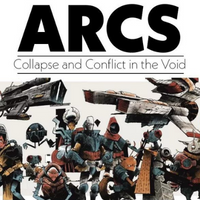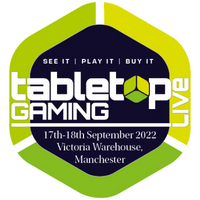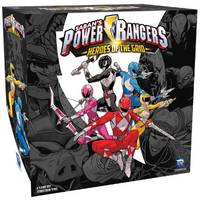28 February 2023
|
What's in a game?
This might seem like a ridiculous question – after all, most of us have hundreds, maybe thousands of conversational exchanges every day. But stop to examine these exchanges for a moment and you’ll realise something astonishing. Each one – and each segment of each one – requires an intricate sense of timing. Like a squirrel weaving across a six-lane motorway we’re required to weave in and out of split-second gaps, spot openings and predict the intentions of multiple people.
Yet, somehow, we manage to pull off this strange ritual, part-dance, part-mindreading trick, many many times a day, without even thinking about it. We seem to know instinctively what’s expected of us in conversation, so – in most situations, at least – we speak almost automatically, without wondering: is it my turn yet? What should my contribution be? What are the rules we’re playing by?
Sociologists and linguists have spent decades studying recordings of human interactions and breaking down the many signalling techniques we use to let other speakers know our intent. A conversation, in the end, is a kind of game – one with rules we start to pick up from our earliest years.
Most of us have found ourselves in situations where conversational flow collapses. Where we don’t know what to say. Where uncomfortable silences yawn like sinkholes between exchanges. Where our mouths go dry and the dance of conversation turns into an awkward, stumbling mess. For some – those of us who have social anxiety, who are neurodivergent, or who feel in one way or another outside the norms of the dominant culture – these situations might happen more often than we’d like.
Which is one reason why so many find games such a comfortable, chilled out space in which to socialise. Here, baked into the games themselves, are clear instructions for finding out whose turn it is, what you’re expected to do when it’s your turn, and what the rules and restrictions are governing your actions. And they’re written down! Often with handy little reminder cards you can check during play.

Imagine going into a nightclub, and on every table were player aids with a list of possible actions you could do during your turn – go to the bar, take a seat, start a conversation, hit the dance floor – with a summary of how to perform each action underneath. Imagine if you could watch a video before you went, which ran through the rules, highlighted common pitfalls and showed you people in the nightclub demonstrating possibilities while a voiceover explained what they were doing: ok, so Derek has decided to hit the dancefloor and he’s using his Moonwalk special ability. Cheryl is at the bar this round. She’s exchanging money for cocktails which will give her a bonus to charisma and her dancing ability but a temporary penalty to intelligence…
Games give us a safe framework where many of the unpredictable variables of social interaction are limited by a system of explicit restrictions. Here’s what tonight’s about: we’re working together on a heist; we’re pirates competing for fame and treasure; one of us was murdered and the rest are trying to figure out whodunnit. We’re told what our goals are within the game, we may be told some behaviours that are forbidden – peeking at other players’ cards, for example, or attacking diagonally-adjacent rather than orthogonally-adjacent units – and we’re told the system by which the ‘spotlight of social obligation’ will come round to us. Turn-taking in games is a codified process.
By contrast, social rules are usually invisible and unspoken until we break them. Imagine a situation where you bump into an acquaintance in the street.
‘Hello,’ she says.
‘Hello,’ you say.
‘How are you?’ she says.
‘Fine,’ you say, and walk off.
Now, if you did this, unless there were some obvious reason for your swift departure – maybe you were calling fleetingly from your bike as you whizzed past – she’d be likely to wonder what she had done to deserve such brisk treatment. Were you annoyed at her? Are you just incredibly supercilious and rude? You didn’t deliver any obvious insult, you answered the question put to you, but you violated the rules of the game – that is, you didn’t reciprocate by asking how she was, and you didn’t properly close the conversation by exchanging signals that you were both finished.
What if someone was halfway through telling a story about the time they broke down in the middle of a snowstorm, and you abruptly asked if they have a favourite band? Others present might see such a move – unless you quickly demonstrated how it was linked to their story – as an expression of boredom, or an attempt to undermine them. The question itself is inoffensive but in this context it is likely to be interpreted as antisocial.

So tabletop games can be a relaxing break, because they formalise quite a lot of these ambiguous, sometimes socially perilous, rules. They allow us to be with people we like and care about, without the stress of trying to figure out what to say, when. But this doesn’t mean that games are simply just human interaction on easy mode.
It’s rare that at, say, a wedding reception, you’d look around the table, then tell a fellow guest ‘I’m afraid I’m going to steal your peach flambé’ before reaching across and swiping it. But we deal with situations like that in games all the time. We negotiate deals and treaties, then sometimes we break those treaties. We make aggressive moves that actively block another player and make their success less likely. And when it’s all said and done we have to look them in the eye.
I spoke to Dr Emily Hofstetter of Linköping University, Sweden, who analysed 34 hours of board game play footage to record how players coordinate their actions through ‘nonlexical moans’ – that is, sighs, gasps, grunts, ahhs and other noises that aren’t words. We unconsciously use these sounds all the time, sort of like traffic lights, to conduct the ebb and flow of play, and to manage our fellow players’ feelings.
For example, players might moan in unison to show sympathy for another player’s misfortune, or someone might make loud umms and hmms while taking a long time to decide on a move, as a way of signalling to other players: I am aware you are waiting for me, it is taking a while because I’m finding it challenging, and I am actively working on a solution.
Her research also examines how players narrate game events to manage each others’ feelings, for example by ‘downgrading’ a misfortune: ‘maybe I’ll draw something better next turn’ or providing alibis for why they attacked or blocked a player: ‘I had to attack either you or Susan or I won’t get to resupply, and you’re ahead on victory points’, etc.
Emily told me that, even when a game seems competitive, it’s always a cooperative effort.
‘Competition is only possible when everybody agrees to the parameters of the competition,’ she said. ‘Everybody has come together to create this joint activity, which is very bonding, even if they then spend an enormous amount of time carefully making sure that they don’t have too much friction with each other.’
This then, is the paradox of games. On the one hand, they offer a more predictable, formalised social environment, but it’s precisely this predictability that allows us to experiment with behaviour that would be taboo anywhere else – conspiring, backstabbing and openly attacking friends and family, while managing their feelings in the aftermath. Tabletop games offer us a unique laboratory in which we can explore interpersonal conflict, and practise the rhythms of human communication, knowing that, if things go wrong, we have the structure of play to guide us through that trickiest of social questions: whose turn is it?
Looking for more?

This review came from Tabletop Gaming Magazine, which is home to all of the latest and greatest tabletop goodness. Whether you're a board gamer, card gamer, wargamer, RPG player or all of the above, find your copy here.
Get your magazine hereRead More...

If you want to read more about one of the most hotly anticipated games of the year, check out our interview with Cole Wehrle on ARCS! A new game from the designer of Root and Oath, and we've got all you need to know.
To infinity and beyond
Join us in person

We can't wait for Tabletop Gaming Live 2022! An epic weekend in Manchester full of board games, card games, roleplaying games, wargames and more, with amazing exhibitors, great games, and an opportunity to game together in person.
See you there!Treat Yourself!

Have you visited our game store? We have everything from mystery boxes, to games and accessories – including the above Power Rangers: Heroes of the Grid, with a great discount! Head over to find your new favourite game.
Visit the Game Store
Sometimes we may include links to online retailers, from which we might receive a commission if you make a purchase. Affiliate links do not influence editorial coverage and will only be used when covering relevant products








Comments
Login or register to add a comment
No comments